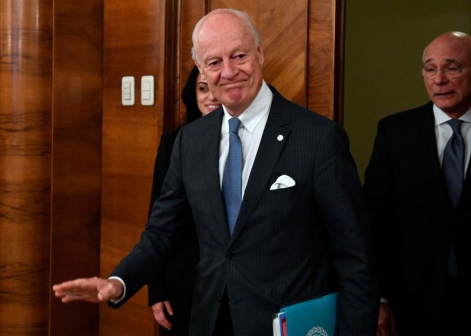×
The Standard e-Paper
Smart Minds Choose Us

The United Nations will try to revitalise its flagging Syria peace process this week, buoyed by the prospect of hosting a unified opposition delegation in Geneva for the first time.
The UN-brokered talks to end the war that has killed more than 340,000 people since 2011 have achieved little through seven previous rounds, leaving them overshadowed by separate diplomatic pushes led by Russia, Turkey and Iran.